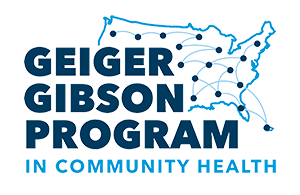A challenge to the Affordable Care Act, Braidwood Mgmt. Inc. v. Becerra poses a threat to one of the law’s most popular features - its requirement for preventive services coverage including ACIP-recommended immunizations, preventive care for children, preventive health care for women, and other essential screenings. A new amicus brief filed on behalf of 111 public health and health law and policy Deans and Scholars, the American Public Health Association, the Robert Wood Johnson Foundation, Trust for America’s Health, and ChangeLab Solutions highlights new findings on the preventive health gains at stake in Braidwood. The case is now pending in the United States Court of Appeals for the Fifth Circuit, and oral arguments are expected in the coming months.
The Deans and Scholars / APHA brief draws on evidence contained in a series of new analyses detailing the potential impact of Braidwood, prepared by our research team in the Department of Health Policy and Management at GW's Milken Institute School of Public Health.
The case could have far-reaching consequences. If the plaintiffs were to prevail, more than 75 percent of 125 important maternal and child health services would be affected. Ninety procedures would be fully eliminated and five procedures whose reach into the population has been expanded since 2010 would be scaled back. Use of high-value preventive care related to women’s health, maternal health, preventive reproductive health, and infant, child, and adolescent health is widespread, and an analysis of billions of private insurance claims in the FAIR Health National Private Insurance Claims (FH NPIC®) shows that between 2018 and 2022, their use increased dramatically.
Also at risk are older working-age adults, who potentially face the loss of coverage for essential preventive services and procedures such as new or updated immunizations, screening for certain cancers such as BRCA mutation-related breast cancer, cervical cancer, and colorectal cancer, and pre-exposure prophylaxis (PrEP) to control the risk of HIV exposure as well as statins to control cholesterol.
Particularly hard hit could be residents of medically underserved urban and rural communities who rely on community health centers. Nationally, community health centers are a cornerstone for access to primary and preventive care. If free preventive care is eliminated as a result of the Braidwooddecision, mill
The four studies are available now on the Geiger Gibson Program website:
Millions of Community Health Center Patients Benefit from the Affordable Care Act’s Free Preventive Care Guarantee. Its Future is Uncertain
Braidwood Management v Becerra Could Eliminate Three Quarters of the Affordable Care Act’s Preventive Benefits for Women, Infants, and Children



